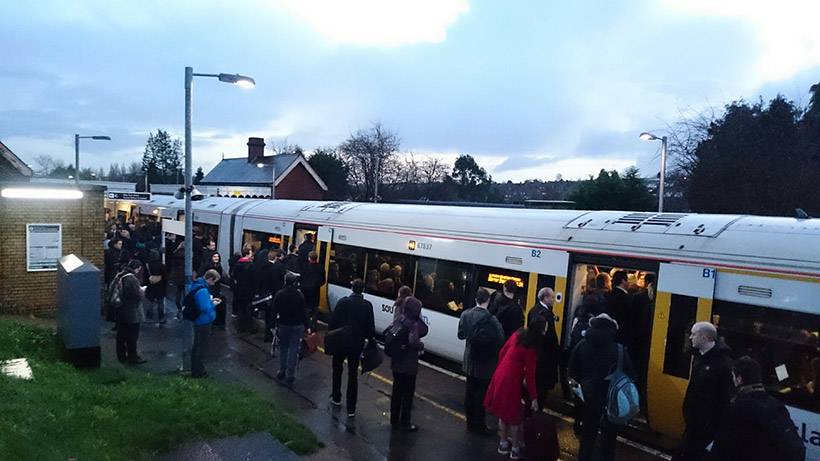Concerns have been raised over the latest annual rail fare hike of 1.1% as Tunbridge Wells commuters headed back to work this week.
While the government has defended the rise as the lowest since 2010, campaigners have raised fears over continual increases – which have made UK train prices the highest in Europe.
Labour leader Jeremy Corbyn has branded the increase as being “outrageous and unjustified,” with fares having risen by 25% in the last five years. This has left commuters in Tunbridge Well facing an annual bill of £5,108 for a season rail ticket to London, costing more than £50 than last year.
Analysis from rail unions and the TUC has found that commuters in the South East use 13% of their salary on travel. This is around six times more than in some areas of Europe, where only 2% of a monthly average pay in Italy, 3% in Spain and 4% in Germany is spent on train travel.
Bruce Williamson, of campaign group Railfuture, said: “High Street prices have remained stagnant for more than a year, with the official CPI inflation figure hovering around zero, yet the government thinks it is fair to make rail travel even more expensive.”
Tunbridge Wells resident Al Kassim said: “We moved to the area in the summer after living in London. I still work in the city and the commuting was a shock to the system. But I quickly figured out the train isn’t really worth it, old or new price, because times have changed.
“I work from home one day a week and have a healthy annual leave allowance. In the summer I ride a motorbike a day or two a week. So the £35 a day is the only option because a weekly/annual isn’t worth it. Instead I take the coach whenever I can (a book of 10 singles is £86) and only take the train if I absolutely need to, however much I feel ripped off. Train pricing isn’t really with the times of flexible working.”
According to a YouGov poll last month, 65% of people in the region think rail services are bad value. A total of 62% said they would support railways to return to public ownership.
In response, the Rail Delivery Group said the network was undergoing some of the most extensive investment seen in decades, which had to be paid for.
Paul Plummer, chief executive, said: “On average, 97p in every pound from fares is spent on trains, staff and other running costs. With passenger numbers doubling in the last 20 years, money from fares now almost covers the railway’s day-to-day operating costs.”
This week a protest at Tunbridge Wells station was organised – The Times of Tunbridge Wells investigated, but it did not happen. Where you aware this was happening? How concerned are you about train fare rises? Get in touch with your stories at freelance5@markerstudy.com








